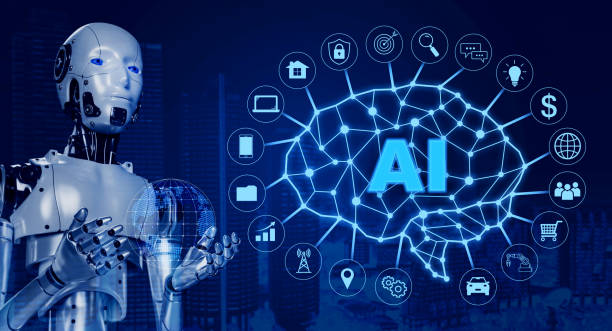The implementation of artificial intelligence in technologies has made a swift transition in almost every field it has touched, and the mobile apps sector is no exception to that. AI is no longer a futuristic opportunity; it is a reality that can be harnessed by people, especially business-minded individuals, businessmen, and application developers. From generating codes for powering app development to enhancing the use of new apps employing machine learning, AI is revolutionizing the application design, development, and deployment.
Since AI has the capacity to interpret the results and forecast users’ behaviors and choices, then businesses can develop a suite of apps that are more interesting without great effort. However, can build a mobile app using AI be done without the help of technological skills of a higher level? Are current AI-based tools only supplements to conventional development, or are the new ways of going about it? Here we will discuss if AI can take up the responsibility of mobile application development at its full potential.
How AI is Transforming Mobile App Development
AI is making app development more efficient, accessible, and cost-effective. From automating coding processes to offering real-time analytics, AI-powered platforms are reshaping the way developers create applications.
1. Automated Code Generation
While creating apps, one of the most significant problems has always been to code realistically intricate applications. AI-based tools like OpenAI Codex and GitHub Copilot also help the developers create code snippets on the basis of textual input from the developers. These tools assist in increasing the speed of developing the applications, avoiding mistakes and also empowering people who are not programmers in app development.
2. AI-Driven UI/UX Design
The properties of user experience (UX) and interface design are very important for an application application. The capabilities include the portfolio’s layout and color scheme that will be personalized according to the user’s behavior and current trends. There are other tools, such as Uizard and Adobe Sensei, which assist developers in designing friendly graphic interfaces of an app without much strain.
3. App Testing and Debugging
In application development, AI can be used to test to check whether an app has every possibility of containing bugs and other vulnerabilities. While Applitools and Test.ai are testing solutions that employ artificial intelligence in enabling real-time testing, the tools identify defects as they are in the process of occurrence. This is not only beneficial for the app quality improvement but also for shortening the development time and its costs.
4. Personalization and User Engagement
Due to its smart algorithm, AI is capable of searching for the most relevant and appropriate content, making appropriate recommendations and even engaging in a dialogue with a user. Whenever it comes to personal assistants used to answer customers’ questions or recommendation systems that help buy particular products, using Artificial Intelligence guarantees that each client gets involved individualised experience. Netflix, Amazon, and Spotify are some of the companies that employ AI in suggesting content that might interest the users.
5. Voice and Image Recognition Integration
Currently, mobile applications cannot dispense with elements of voice and image recognition based on artificial intelligence, such as Siri, Google Assistant, and Alexa. Most of the capabilities in AI, such as Google ML kit and Amazon Rekognition, are easily incorporable by the developers into their applications.
Can You Build a Mobile App Using AI Without Coding?
The answer is YES! AI-powered no-code and low-code platforms enable non-technical users to build a mobile app using AI without writing extensive code. These platforms offer drag-and-drop functionalities, AI-driven automation, and pre-built templates.
No-Code AI Platforms
No-code platforms like Adalo, Bubble, and Glide allow users to create functional mobile apps without any programming knowledge. With AI-driven automation, these platforms can generate code, suggest UI elements, and optimize performance.
Low-Code AI Platforms
For users with some technical background, low-code platforms like Mendix, OutSystems, and Microsoft PowerApps provide more flexibility. These platforms use AI to assist with coding, automate backend processes, and integrate third-party services seamlessly.
AI Chatbots and Virtual Assistants
Many businesses integrate AI chatbots, like ChatGPT or IBM Watson, into their apps to enhance customer support, automate responses, and improve engagement. AI-driven chatbots offer real-time assistance, making mobile apps more interactive and efficient.
Benefits of Using AI in Mobile App Development
| Benefit | Description |
| Faster Development | AI-powered tools automate coding, reducing development time. |
| Cost-Effective | No-code and low-code platforms minimize development costs. |
| Better User Experience | AI optimizes UI/UX for better engagement. |
| Improved Security | AI detects vulnerabilities and enhances app security. |
| Scalability | AI-driven automation allows seamless scaling of applications. |
| Enhanced Personalization | AI customizes user experience through data analysis. |
Challenges of Build a Mobile App Using AI
Despite its advantages, AI-driven app development comes with some challenges:
- Initial Setup Costs: AI tools and platforms may have high initial costs, especially for advanced AI-powered apps.
- Data Privacy Concerns: AI relies on user data, which raises privacy and security concerns.
- Limited Customization: No-code platforms may have restrictions on advanced customization.
- Dependency on AI Accuracy: AI-generated code and designs may require human validation and refinement.
In a Nutshell
If you need the best, faster, efficient, and cheapest way of developing a mobile app, a good idea is to build a mobile app using AI. In the development of apps, there are two approaches, using no-code platforms with AI or incorporating AI features into an existing system, and either way, the optimization of speed, efficiency, and user-friendliness is enabled by this technology.
AI is not as threatening to developers as people think, but it is enhancing the development process and presenting tools to developers that will improve their work. Currently, the availability of online AI-driven development platforms makes it very possible for business individuals to create fancy applications even without the aid of programmers with detailed coding backgrounds.
The idea of AI app development is quite impressive; are you ready to start the process? Head over to Moobila for more information on the targeted AI-based solutions for creating mobile applications.



